Blogpost
DECIDE to grow your Energy Community or Collective Action
DECIDE’s main goal is to contribute to better understanding of the social science, regulation and business cases that drive creation and expansion of Energy Communities and Collective Actions, and uses the gained knowledge and lessons learned to encourage implementation of such initiatives across the European Union. Within the project, we are preparing an online platform, the Knowledge Hub, where anyone interested in such initiatives can share and find information, and a Coffee shop, platform for DECIDE Pilots, Replicants and Followers, where they can engage in sharing and learning from project partners and each other. These platforms will be accessible through the DECIDE website by September 2021.
Uptake of Energy Communities and Collective Actions can accelerate the energy transition and increase the use of energy services, measures and products that contribute to a financially optimal, decentralized and sustainable energy system.
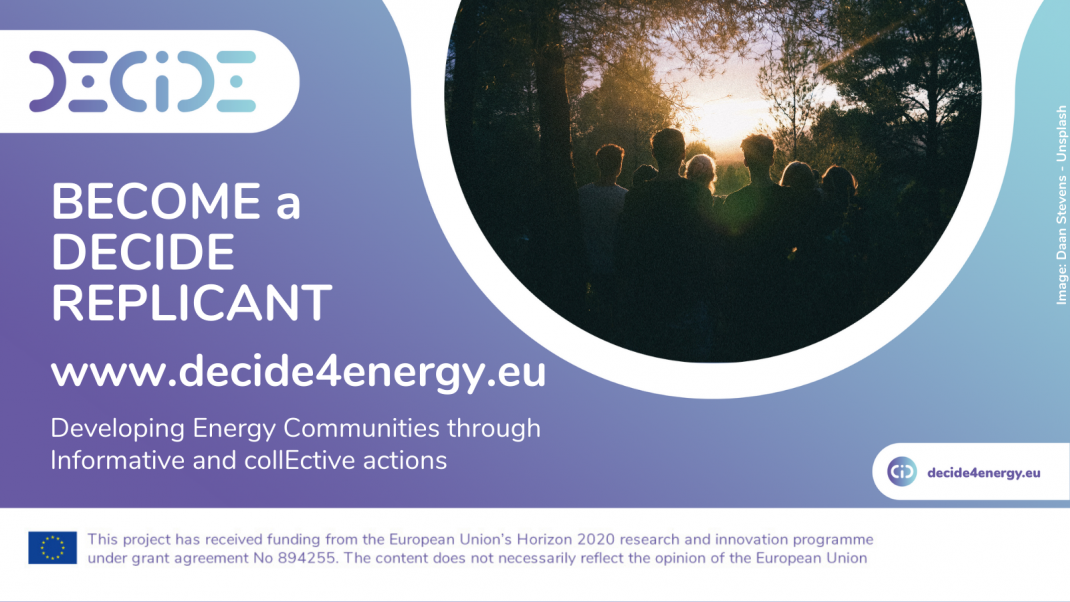 decide
decide
What are energy communities and collective actions?
An Energy Community is a type of collective energy action. Therefore Collective actions include energy communities, energy cooperatives, collective generation and trading of electricity, generation-consumption communities, collective (residential and industrial) self-consumption, financial aggregation and investment, collective supply and use of energy services, cooperative financing of energy efficiency, etc. Within the DECIDE project, our aim is to focus on collective actions that benefit the local community, citizens or its members.
Energy Communities are a subset of collective actions that have open democratic participation and governance and provide benefits to their members or the local community. Benefits can be social, environmental or economic, though the latter should not be the driver. Participation is open to a wide group of stakeholders, citizens, local governments, public entities and companies, but decision making can be limited to avoid that large entities active in the sector monopolize the initiative. Two EU directives define two types of Energy Communities: the Renewable Energy Community (REDII) and the Citizen Energy Community (EMD). Transposition of these directives is in process across different Member States.
To learn more about energy communities,have a look at our Smart Cities Marketplace solution booklet or listen to Leen Peeters and Andreas Tuerk discuss this topic in a recording of an interactive workshop from June 2020[4].
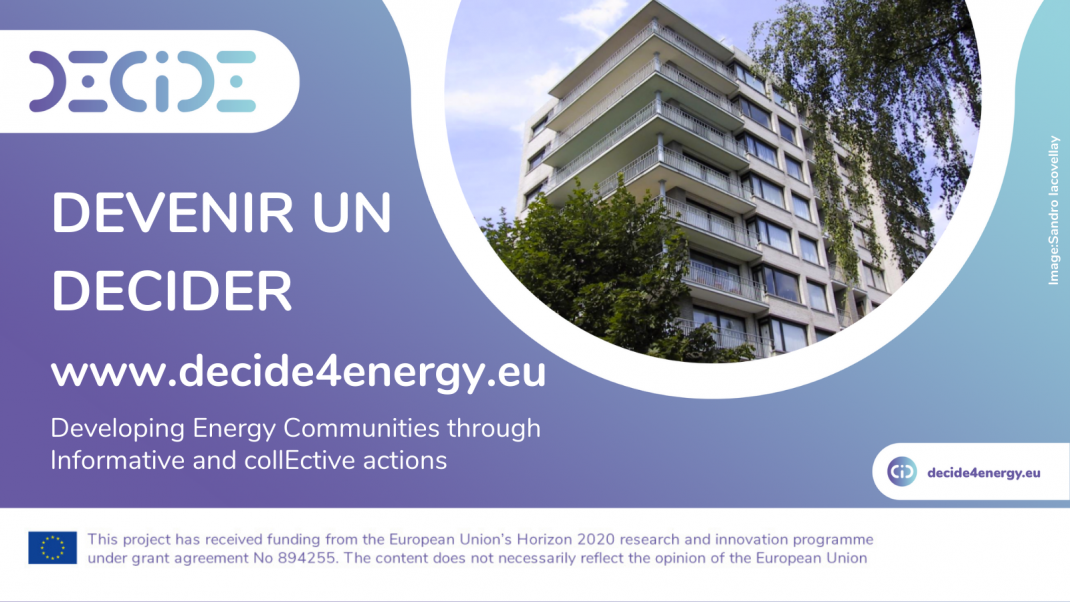 decide
decide
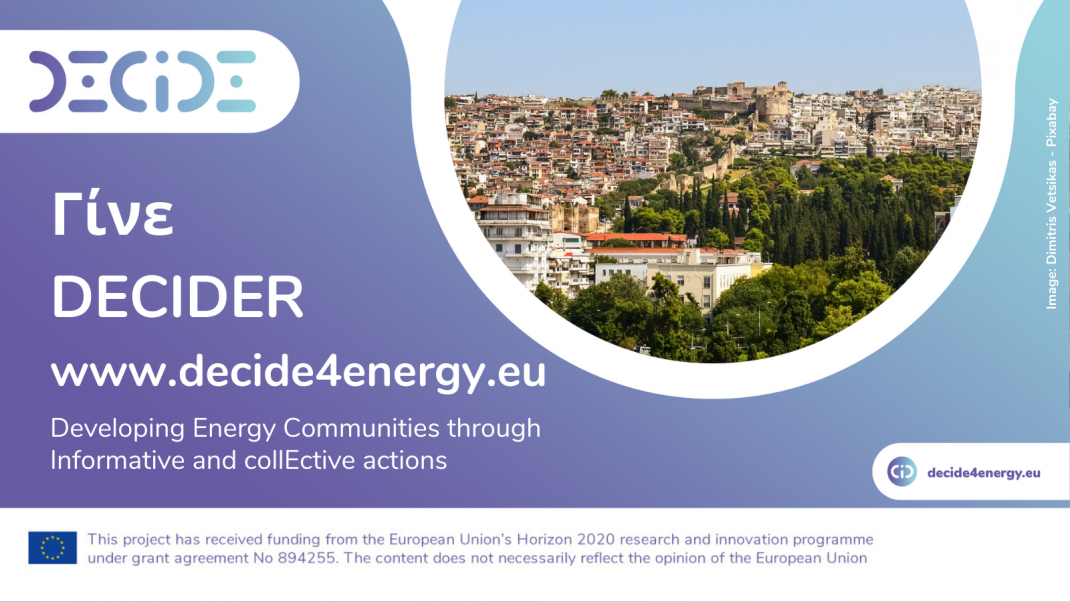 greek
greek
What is a Replicant and why should I become one?
A DECIDE Replicant is an existing Energy Community (EC) or Collective Action (CA) coming from a European or H2020-associated country that participates in the DECIDE project, but is not one of the 7 starting pilot ECs and CAs.
DECIDE Replicants get the opportunity to, among others:
⚙️ Interact and collaborate with their peers in DECIDE project partners, seven existing DECIDE pilots and the rest of the community interested in ECs and CAs through the online platforms DECIDE Coffee Shop and Knowledge Hub;
? Receive dedicated and tailored advice from the DECIDE partners with application and uptake of the lessons learned from the other pilots and Replicants;
?? Participate in capacity building workshops and webinars aimed at awareness raising on best practices for user engagement, regulatory framework and business models;
?? Gain EU-wide visibility of their activities and initiatives, through the DECIDE website, the network of EU-wide projects and initiatives and the participation of DECIDE in EU conferences and events.
As DECIDE Replicant you will help broaden the scope of activities and experiences from a social, regulatory and business perspective, and help build a more comprehensive knowledge base for further uptake of Energy Communities and other Collective Actions across the EU.
 ourpower
ourpower
 therm
therm
 enbro
enbro
 trea
trea
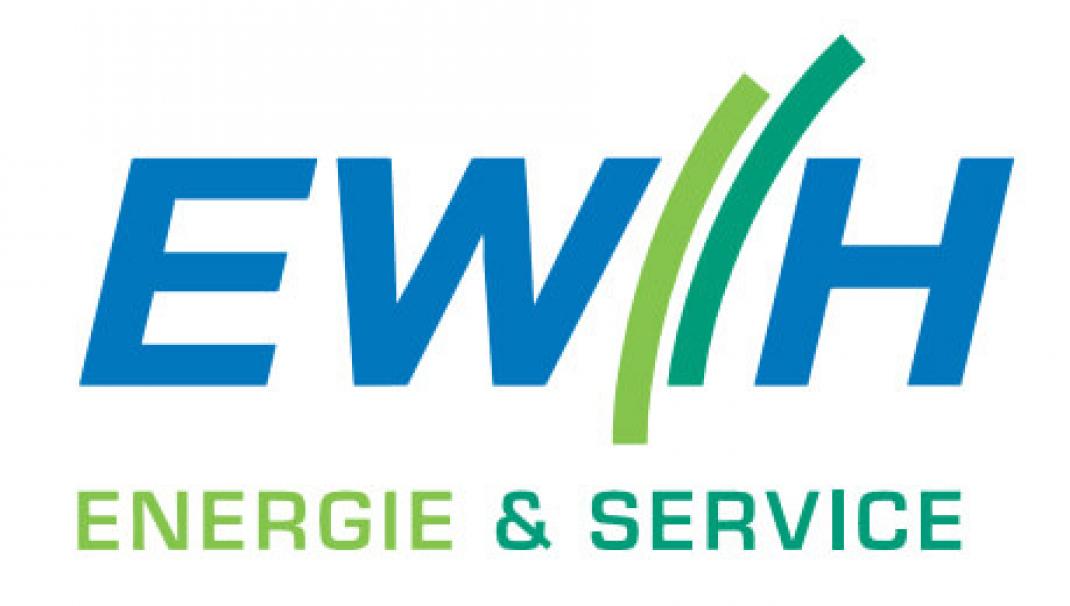 hind
hind
 domx
domx
 heron
heron
What can I replicate?
Our best practices are based on experience of energy communities and collective actions from 7 pilots (in Austria, Belgium, France, Germany, the Netherlands, Estonia and Greece). We want to help you apply the lessons learned, grow your energy community / collective action and create examples that can be further replicated as well. Meet our pilots:
OurPower is an emerging energy cooperative in Austria operating a peer-to-peer marketplace for RES electricity generated by its members. It promotes collective financing, citizen engagement and addresses two different customer segments: private homeowners with solar PV, and communities of citizens financing solar, wind, and biomass projects.
ThermoVault offers a software and hardware solution for electric energy services of residential thermal appliances, unlocking cost-effective energy storage and allowing for the integration of more renewables through aggregation. Its retrofit solution for existing water and space heaters results in direct energy savings for residential customers. The pilots selected here include communities of social housing apartment buildings.
ENBRO provides energy brokerage, guidance, advice, development and structuring of solutions that reduce the energy bill to residential, commercial, industrial and public consumers through a better balance between production and consumption. The pilot sites in 4 cities include mostly social housing, but the services are open to all residential clients, public as well as commercial buildings.
TREA is an energy agency located in Tartu, Estonia, providing services to citizens, SMEs and municipalities. The pilot area is connected to district heating and comprises a range of residential buildings needing renovation. A cooperative approach has been designed for energy that is scalable towards the whole district with similar housing blocks and replicable to several Eastern European countries with similar districts.
In Hindelang, the cooperative EWH was founded in the 1920’s by citizens for their village’s electricity supply, now counting 330 members (including SMEs and the municipality). EWH puts strong emphasis on local sustainable energy production (close to 100% RES), organizes energy supply to ca. 5.000 inhabitants and operates the grid. Now they strive for more efficiency, to use excess electricity for heat pumps and electric vehicles.
HERON is the largest independent electricity retailer, and a rapidly developing natural gas supplier in Greece, owning a customer portfolio consisting of more than 150 000 subscribers. The target for the DECIDE pilot includes 200 electricity consumers with real-time power meters for consumption and 15 electricity prosumers with real-time power meters for consumption and production from local RES (net metering).
DomX offers a unique retrofit solution for the automation of legacy gas-based heating systems. The system brings several advantages to end-consumers, including: improved heating efficiency (up to 40%), smart and remote control, improved comfort and direct participation in flexibility aggregation services. Through DECIDE, 50 residential end consumers of HERON’s portfolio are covered, while exploitation will focus on more to come.
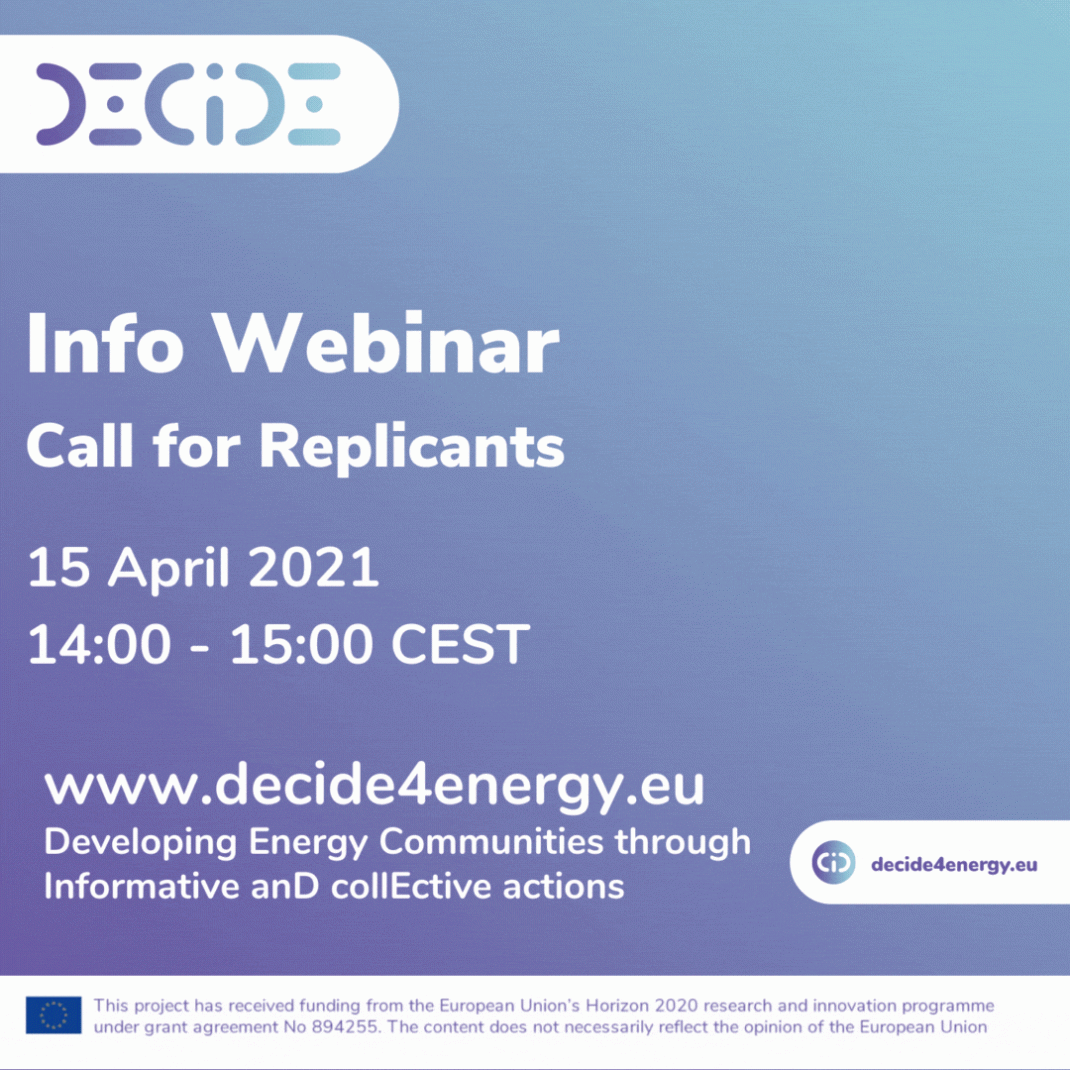 decide
decide
The DECIDE project’s objective is to create a platform for DECIDE pilots, Replicants, Followers and any interested stakeholder or citizen to exchange information on best practices for starting, managing, expanding and replicating an Energy Community or Collective Action across the EU. The aim is to include in the DECIDE project and its network different forms of initiatives, from various member states, and with focus on different social, regulatory, or technological concepts. In this way, our social, regulatory and market knowledge will become relevant for even more initiatives across the EU.
Therefore we encourage you to apply for our Call for Replicants and to follow DECIDE’s upcoming activities and online platform.
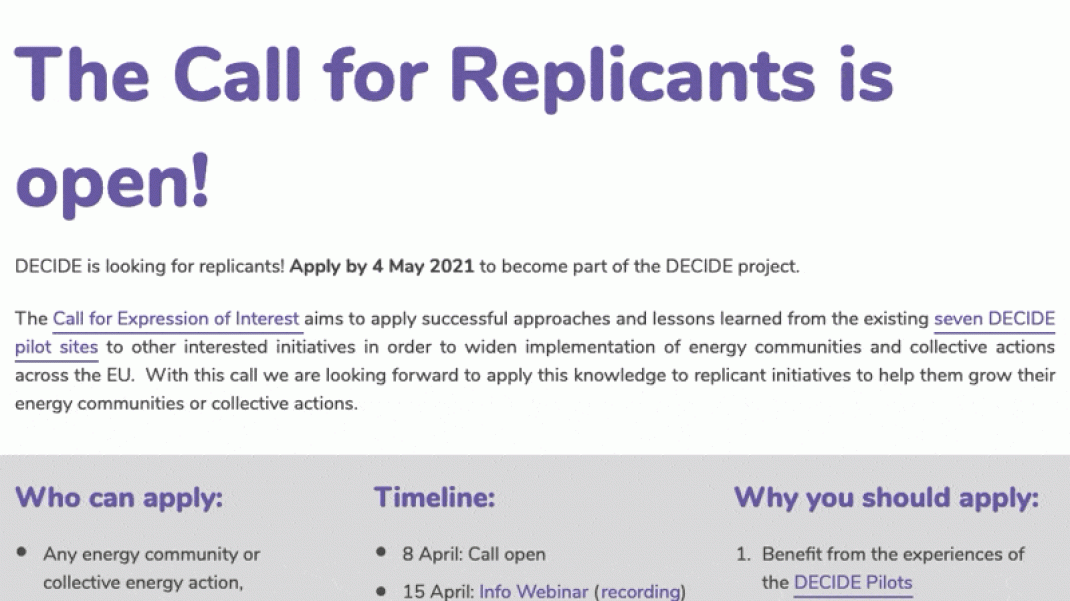 website
website

